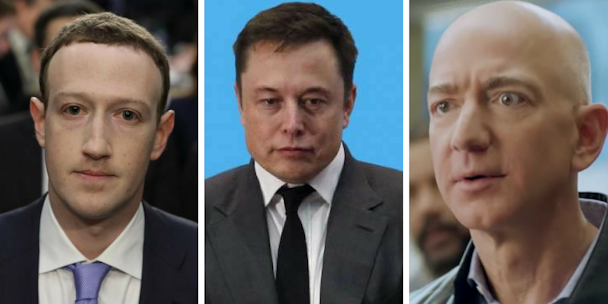With tech firms under scrutiny, it’s clear that their CEOs have disregarded comms training
The nature of the modern tech entrepreneur bears striking resemblance to that of a cult leader. They fit a mould. They undoubtedly spent most of college in their room coding or inventing before dropping out to focus on their product and then they’re a billionaire by 30.

With tech firms under scrutiny, it’s clear that their CEOs have disregarded comms training
Apple had Jobs, Facebook has Zuckerberg, Amazon has Bezos and Tesla has Musk. These leaders are also, often and for lack of a better word, odd. Jobs was an alleged maniac, nobody will ever forget how weird Zuckerberg was during those Q+A sessions and Musk is getting more erratic by the day.
Despite of and as a result of their success, their synonymy with their brand poses a large obstacle in terms of reputation management. Anything they do or say is intrinsically linked to their brand and how people perceive it. This threat is currently being exacerbated by the fact that the tech giants are under a level of scrutiny that they are not used to.
Facebook’s Cambridge Analytica scandal and Google’s competition fine last week are just two examples of authorities attempting to crack down on the power that these behemoths are beginning to wield. Worryingly for the giants, the public are also beginning to open their eyes.
Elon Musk, the undisputed king of the PR stunt, has had a disastrous time on Twitter recently. He called one of the divers that helped save the trapped Thai football team ‘the pedo guy’. It is a comment that is so far from acceptable that it leaves the reader wondering whether Musk might actually have the mind of Sid from Toy Story…
Musk’s comment was a reaction to being told that the submarine he made and sent to Thailand as an escape option wouldn’t have worked. This is why his reaction was so visceral. He is a proud man. He sees himself as a genius and his ability to send cars and rockets alike into space has fuelled an arrogance that leaves him vulnerable to overreaction when criticised. It is unlikely that there are many, if any, employees inside Tesla HQ that disagree with him on a daily basis. He isn’t used to it and he has not been trained for situations in which he is, hence the petulant reaction.
The consequence of being the billionaire CEO of a company that launches rockets and provides solutions to entire nations in the blink of an eye is a level of hubris that is hard for ‘normal’ people to understand. He may not think he’s God but I wouldn’t be surprised if he’s tried turning petrol to wine.
Given how synonymous Musk is with Tesla, he must be trained to abandon his hubris when receiving criticism, for the sake of his and Tesla’s future. The fact he is not able to hold himself back from calling a hero a paedophile, or aware of the damage he could do by doing so, is extremely concerning. It is a turn off for potential customers and investors alike.
Zuckerberg has also recently found himself in hot water. A front page of last Thursday’s New York Daily News reads: “Holocaust deniers deserve a voice – says Facebook won’t ban them because plenty of people ‘get things wrong’” For all the details, the full story can be read at: Sky News.
Zuckerberg went into this interview either under-prepared or ill-advised, or both. On the topic of fake news and inflammatory content, there is no room for error on his part. It is the single biggest threat to his business and legacy. Facebook have already had to change their news feed algorithm this year in order to control content. Comments like these from Zuckerberg will not reassure users or governments that he platform will not become filled with hate speech in the future.
The reason behind the fact that Zuckerberg has not received training on this is presumably the same as Musk’s - that there are not enough people inside Facebook prepared to tell their leader that he needs to be coached, taught and advised on things that he might not be strong at. Communications is one of these things. The public already thinks he is a robot, if he becomes a heartless robot, there’s no amount of CPR that will save him or Facebook.
Communications, and in particular crisis communications, is all about preparation: proactivity over reaction. If you are reacting, you’re probably too late. You need to be ahead of the situation and have pre-made plans in place to get ahead of the situation if you do find yourself caught out. It does not take a massive leap of the imagination to see that holocaust denial and calling someone a paedo are obvious things to avoid being unclear about or doing, and yet, two of the most famous CEOs in the world have done both in the space of a week.
Hours spent thinking through these situations, planning and being open to advice avoids months and years spent trying to claw back reputation capital lost because of one interview or one stupid tweet. Tech CEOs, you may have seen success quickly, but reputation is built slowly and lost in the blink of an eye. Do not let your status let you think you’re immune. Your colleagues may fear challenging you, but the public does not.
James Porter is an account executive at W Comms.
